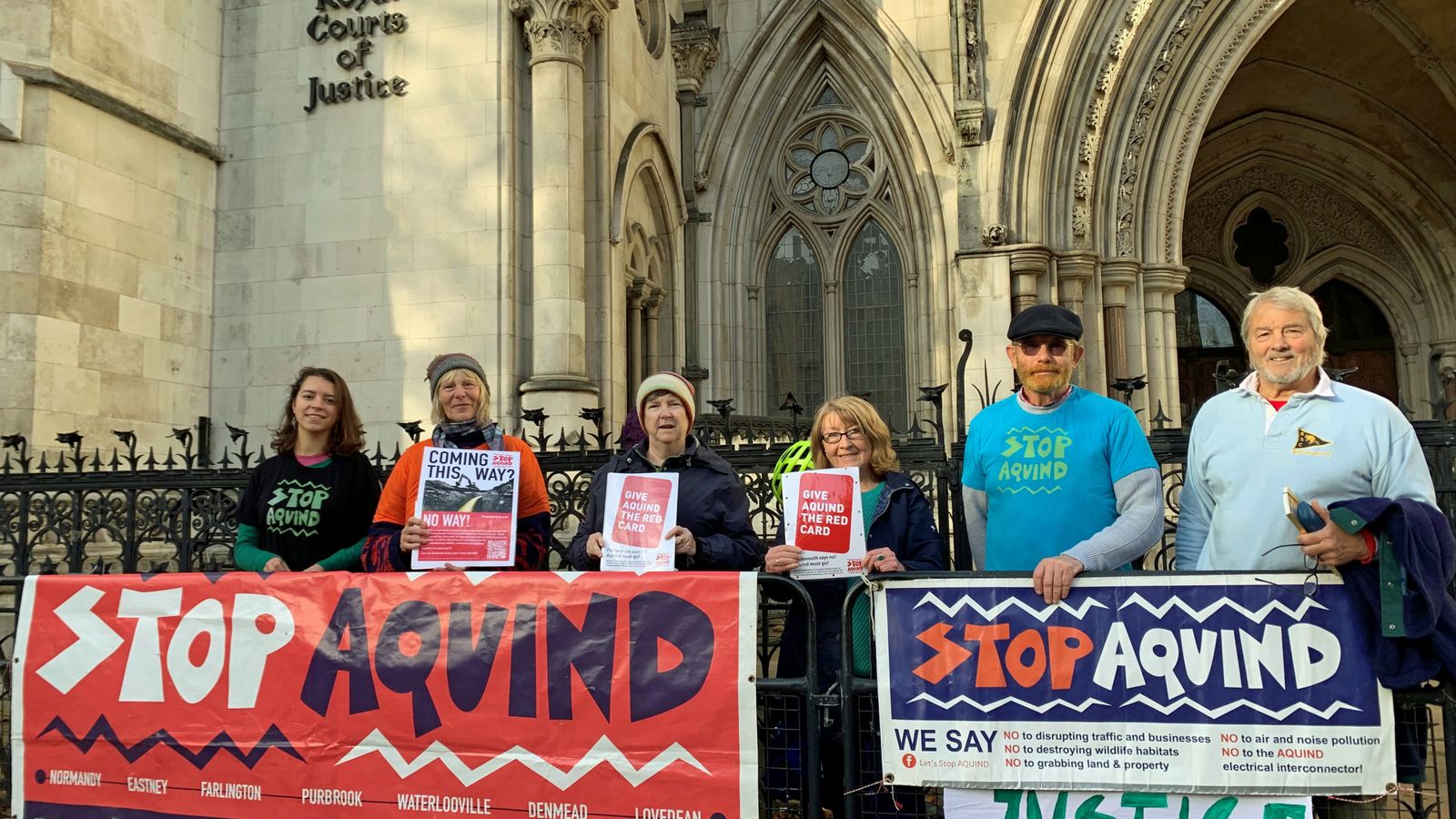The government’s decision to reject plans for a £1.2bn cross-Channel power cable project has been overturned by the High Court.
Kwasi Kwarteng, business secretary at the time, refused development consent for Aquind’s new subsea electricity link between Portsmouth and Normandy in January.
But on Tuesday, Mrs Justice Lieven ruled Mr Kwarteng, who was briefly chancellor under Liz Truss, “erred in law” and failed to comply with his department’s National Policy Statement on energy when reaching the decision.
She said Mr Kwarteng had failed “to properly consider the information that he had been given” against using an alternative site in Mannington, Dorset, which would require longer submarine cables crossing a major shipping lane.
The plans will now go back to current Business Secretary Grant Shapps for reconsideration.
A government spokesman said: “The UK government is disappointed by the outcome but we will be considering the judgment carefully before deciding next steps.”
Portsmouth MPs and the city council had objected to the project, while former energy minister Anne-Marie Trevelyan recused herself from the process after receiving funding from one of Aquind’s owners.
Kwasi Kwarteng admits he and Truss ‘blew it’ and got ‘carried away’ with economic reforms
After Kwasi Kwarteng’s disastrous mini-budget, there is no magic cure
I found out Liz Truss had sacked me on Twitter, ex-chancellor Kwasi Kwarteng reveals
Aquind Limited is part-owned by former oil tycoon Viktor Fedotov, who has donated at least £430,000 to the Tory party and MPs, while director Alexander Temerko has given more than £730,000.
Read more:
France’s threat to cut Jersey’s power means Channel cable project should be scrapped
Energy firm says donations to Tory Party will not influence Channel project
Commons leader Penny Mordaunt, Portsmouth North MP, vowed to “fight on” in her campaign to block the project.
The former defence secretary said: “Disappointing though this decision is, I remain confident that this unwanted and unnecessary project will never happen.
“It is hard to imagine why any investor would want to be associated with it. I believe the government’s decision was the right one and that it will stand.
“I also know that our whole community will again make the case for why this is so damaging, not just to our local area, but to the whole of the UK.
“We will fight on, and we must win.”
Mr Temerko has previously threatened legal action against Ms Mordaunt, who he said was the “biggest threat to security”.
After Tuesday’s ruling, Aquind director Richard Glasspool said: “This is wonderful news for the Aquind interconnector project. We were dismayed and disappointed when Kwasi Kwarteng refused the development consent order.
“We look forward to re-engaging with local residents, stakeholders, environmental experts, and energy professionals in order to pursue the commitment to meeting the UK’s net zero energy target.”
Mr Kwarteng had not been satisfied “appropriate alternatives to the proposed route” had been sufficiently considered and said there were particular concerns over “the proposed landfall in an urban location”.
But at a hearing in November, Aquind claimed Mr Kwarteng was “misled” by officials, “failed” to take account of certain evidence and adopted an unfair decision-making procedure.
Simon Bird KC, for Aquind, told the court in written submissions that the proposed interconnector would be able to transmit up to 16,000,000Mwh of electricity per year, which was about 5% and 3% of the total consumption of the UK and France respectively.






















